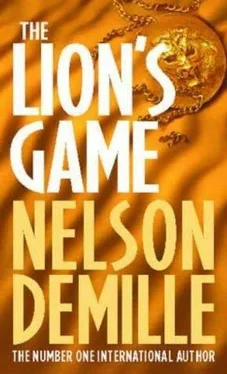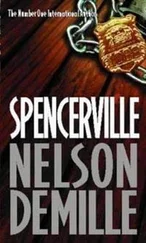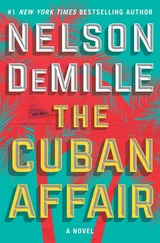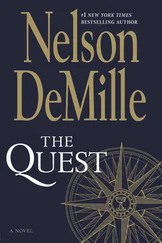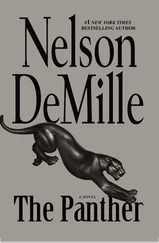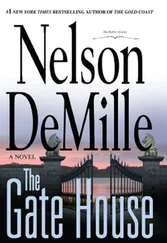"I'll hold the cab." She left.
I sat there a few minutes, during which time my phone rang and someone plopped more papers on my desk.
I was trying to figure out why I said, "Can I help?" I have to learn to keep my mouth shut.
There are times when I'd rather face an armed homicidal maniac than face another night in a lady's apartment. At least with the homicidal maniac, you know where you stand, and the conversation is understandably brief and to the point.
My phone was ringing again, and in fact phones were ringing all over the big room, and it was getting on my nerves.
Anyway, as good as I am about getting into the heads of killers and predicting their moves, I am absolutely clueless about sexual involvements-I don't know how I get into them, what I'm supposed to do when I'm in them, why I'm in them, and how to get out of them. Usually, though, I know who the other person is. I'm good at remembering names, even at 6:00 A.M.
I'm also good at smelling trouble, and this was trouble. Also, I'd been straight as an arrow since my involvement with Beth Penrose, and I didn't want to complicate that relationship or complicate my life.
So, I made the decision to go downstairs and tell Kate I decided to go home. I got up, took my jacket and briefcase, and went downstairs and got into the cab with her.
Asad Khalil continued north on 1-95, retracing his route from Jacksonville, across the Georgia border, then into South Carolina. Along his route, he disposed of the computer disks from Paul Grey's office.
As he drove, he thought about his morning activities. Certainly by this evening, someone would be looking for the cleaning woman, or for Paul Grey. At some point, someone would discover the bodies. The assumed motive for Grey's murder would be the theft of the sensitive software. This was all as planned. What wasn't well thought out, he realized, was the problem of his pilot. Quite possibly, by this evening or tomorrow morning, the murders in Spruce Creek would come to the attention of someone at Alpha Aviation Services, and, of course, his female pilot, who would certainly recall the name Paul Grey. Khalil had not realized that the man's name would be on the hangar.
This woman would call the police and suggest that she may have some knowledge of this crime. In Libya, no one would call the police with any information that would bring them into contact with the authorities. But Boris had been fairly certain that this could happen in America.
Khalil nodded to himself as he drove. Boris had told him to use his judgment regarding the pilot, pointing out, "If you kill the pilot, then you must also kill everyone else who knew of your flight and who saw your face. Dead men cannot go to the police. But the more corpses you leave around, the more determined the police will become to find the murderer. A single murder of a man in his house for the purpose of theft does not cause too much interest. You may be fortunate enough to have it go unnoticed in Jacksonville."
Again, Khalil nodded. But he'd had to kill the cleaning woman, just as he'd done in Washington, in order to give him more time to distance himself from the killing. Someone should tell Boris that Americans did not like to clean their own homes.
In any case, the police were looking for a thief, not Asad Khalil. Also, they were not looking for his automobile, and if the pilot called the police, they would be looking for a Greek on his way to Athens via Washington, D.C. All of this depended on how stupid the police were.
There was the other possibility, of course-the female pilot, seeing the front page of the newspapers, might actually realize who her passenger had been… Undoubtedly, he should have killed her, but he had not. He had spared her life, he told himself, not out of pity, but because of what Boris and even Malik had said about too many killings. Boris was not only cautious, but also too concerned about the lives of the enemies of Islam. Boris had not wanted to gas the aircraft full of people, for instance, and had called this "an insane act of mass murder."
Malik had reminded him, "Your former government killed over twenty million of your own people since your revolution. All of Islam has not killed that many people since the time of Muhammad. Please do not preach to us. We have a long way to go to equal your accomplishments."
Boris had not replied to this.
As he drove along 1-95, Khalil put these recollections out of his mind, and thought once again of Paul Grey. He had not died as well as the brave General Waycliff and his brave wife. Yet, he had not died begging for his life. Khalil thought perhaps he should try a different method with William Satherwaite. They told him in Libya that the former Lieutenant Satherwaite had experienced some misfortunes in life, and Boris had said, "Killing him might be doing him a favor." To which Khalil had replied, "No man wants to die. Killing him will be as pleasurable for me as killing the rest of them."
Khalil looked at his dashboard clock-it was 3:05 P.M. He looked at his Satellite Navigator. Soon he would be leaving 1-95 for a road called ALT 17 that would take him directly to the place called Moncks Corner.
Once again his thoughts returned to the morning. These dealings with the female pilot had a disturbing effect on him, but he couldn't completely comprehend what had caused him such indecision and confusion. There were good reasons to kill her, and good reasons not to kill her. He recalled that she had said to the woman behind the counter, "I'll be back to take care of the Piper."
Thus, if she hadn't returned, they would be looking for her, and for him. Unless, of course, the woman behind the counter had the thought that her pilot and her customer decided to… be together. Yes, he could see that thought in the woman's face and the way she acted. However, the woman eventually might become concerned and call the police. So perhaps it had been better not to kill the female pilot.
As he drove, a vision of the pilot filled his mind, and he saw her smiling, talking to him, helping him into the aircraft-touching him. Those thoughts continued running through his mind, even as he tried to rid himself of her image. He found her business card in his pocket and looked at it. It had her home phone number written in pen above the business number of Alpha Aviation. He put the card back in his pocket.
He saw his exit at the last moment and swerved into the right lane, then onto the exit ramp for ALT 17.
He found himself on a two-lane road, much different from the Interstate. There were houses and farms on both sides of the road, small villages, gasoline stations, and pine forests. A compatriot had traveled this route on Khalil's behalf some months ago and reported, "This is the most dangerous of roads because of the drivers who are insane, and because of the police who have motorcycles and who watch everyone pass by."
Khalil heeded this warning and tried to drive so as not to attract attention. He passed through a number of villages and saw a police car and a motorcycle in two of them.
But it was a short distance to his destination-60 kilometers, or 40 miles, and within the hour, he was approaching the town of Moncks Corner.
Bill Satherwaite sat with his feet on his cluttered desk in a small concrete block building at Berkeley County Airport, Moncks Corner, South Carolina. He had the grimy handset of a cheap telephone cradled between his ear and shoulder, and he listened to Jim McCoy's voice at the other end. Satherwaite glanced at the anemic air-conditioner stuck through the wall. The fan was clattering, and a trickle of cold air was coming out the vent. It was only April, and it was already close to 90 degrees outside. Damned hellhole.
Jim McCoy said, "Have you heard from Paul? He was going to call you."
Читать дальше
